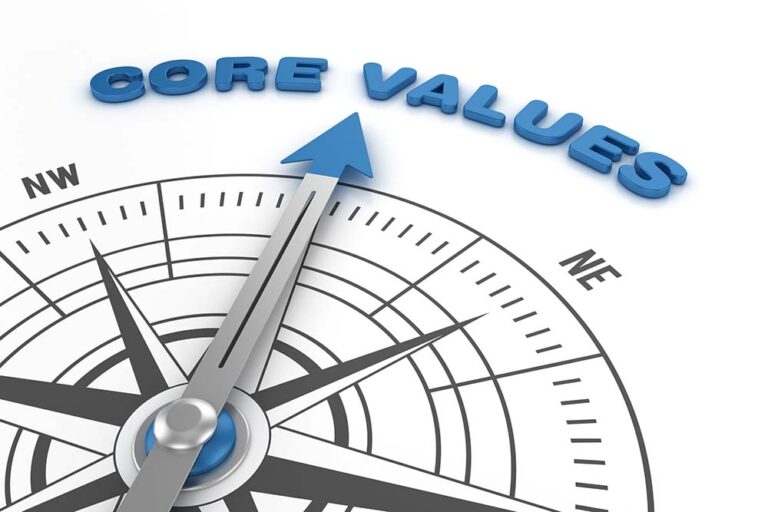As leaders ascend the professional ladder, it’s easy to believe that the same traits and skills that brought them success will continue to propel them forward. Yes, talent, ability, and hard work are essential. In the early career stages, technical skill and expertise are the main drivers of success. But true leadership encompasses not just that you got to the next level, but how you got there. As you move into leadership roles, the ability to manage your own emotions and understand and influence the emotions of others becomes paramount. I’ll go as far as saying that emotional intelligence quotient (EQ) is the primary differentiator that can transform a good leader to a great one.
I’ve written before about the elements of emotional intelligence that help leaders navigate the complex interpersonal dynamics of the workplace, support a positive and growth-minded culture, and inspire their teams to achieve collective goals.
But until a leader really embraces the concept that leadership is far more about focusing on others than on themselves, they won’t be able to reach the heights they aspire to.
Are You Winning the Right Way?
It’s tempting to focus solely on personal achievements and metrics when assessing success. However, stepping on everyone else to get to the finish line raises an important question: Are you really a winner?
When you find yourself at the top and look around for teammates to assist in achieving what comes next, who would want to help? Success built on strained relationships, broken trust, and a toxic work environment is hollow. While the immediate results might seem impressive, the long-term damage can cripple future opportunities. The legacy of a leader who wins at any cost is often marred by resentment and a lack of genuine respect.
I once coached a brilliant executive who was being considered for additional responsibilities. This individual’s ideas are exceptional, a truly outstanding thinker. But as I compiled information from colleagues and supervisors in a 360-degree feedback exercise, I read some concerning descriptions of this person’s behavior. Words like “reserved,” “unclear communication,” “ reluctant to give feedback,” and “not having a point of view” stood out. It was clear this person could get things done and had an intellect that team members respected. But is it easy to follow someone when you are unsure of their leadership? Does anyone ask for guidance from a leader without a vision? When we met, this executive felt that coaching was not a valuable use of time. They exited the coaching relationship before we could make any headway. They did not have either the emotional openness or intellectual curiosity to participate in any self-examination. My feedback to the HR leader who engaged me: “This person isn’t ready for advancement.” They agreed and subsequently this person left the organization.
This leader only wanted to reach the finish line and felt confident about doing it solo. However, when you work in an organization that values collaboration, teamwork, and the ability of every individual to contribute, that doesn’t fly. Individual contributor roles are valuable, and increasingly available as organizations recognize that not everyone can be a people leader. But those who want to advance in roles that involve leading others have to be open to constructive feedback and self-evaluation, or risk stalling in their progress. This is not a “right now” skill, by the way. McKinsey reports that shifts to automation in varied sectors will require more emotional intelligence, not less, with an expectation that the demand for emotional skills in manager roles will grow by nearly 30% by 2030.
A leader who prioritizes emotional intelligence understands that supporting teammates, listening to colleagues, and maintaining a positive attitude, even in the face of challenges, are vital components of lasting success. But how do leaders and their teams get there?
Defining Success
Success in leadership should be measured not only by personal accolades but by the impact one has on their team and organization. Leaders who exhibit high emotional intelligence create a ripple effect. Their behavior sets a standard for others, fostering a culture of mutual respect,collaboration, and trust. Such an environment not only enhances team performance but also promotes individual growth and satisfaction.
Can you be satisfied with your performance even if you aren’t the “winner” by traditional metrics? Absolutely. If you’ve tried your best, supported your teammates, maintained a good attitude, and listened to your colleagues and leaders, you’ve embodied the essence of true leadership. And winning only feels good to all involved if you’ve done it with integrity, fostering a positive environment for all involved.
Consider a scenario where a project is behind schedule and tensions are running high. A leader with strong technical skills but low emotional intelligence might react with frustration or blame, further demoralizing the team. In contrast, a leader with high emotional intelligence would approach the situation with empathy and composure. They would listen to team members’ concerns, identify underlying issues, and work collaboratively to find solutions. This approach not only addresses the immediate problem but also strengthens the team’s cohesion and resilience and fuels a “one-team” attitude, rather than finding fault with individuals.
Leadership is not just about getting things done; it’s about how you get them done. Achieving goals at the expense of others’ well-being or cutting ethical corners may bring short-term success, but at the price of long-term respect and trust. A leader’s attitude, especially during tough times, sets the tone for the entire team. Maintaining a positive, resilient attitude, even when facing difficulties, inspires others to do the same. It shows that you are committed not just to winning but to leading by example, regardless of the circumstances.
Preparation is Key
Listening to feedback, even when it’s hard to hear, is crucial for growth. Leaders who are open to constructive criticism and willing to learn from their mistakes are better equipped to navigate the complexities of leadership. This willingness to evolve and improve is what separates true leaders from those who simply occupy leadership positions.
In a recent coaching session, I had to deliver some hard truths to a competitive, results-driven executive. The feedback encompassed both some of my observations and additional 360-degree comments, which were challenging and in opposition to the executive’s self-evaluation. Admitting, “It hurt to hear,” this individual initially reacted defensively. But as we talked through the feedback, I advised that the emotional sting is a glimmer of recognition that there is truth in the feedback. This moment of realization is crucial for personal and professional growth.
But let’s also address the fact that many leaders are unprepared for the reality of leading when they are hired or promoted into their leadership role. Whether they can stay in that role and get results from it depends on whether they develop the necessary skills to support their teams and spend time preparing and honing those skills regularly. Only 40% of leadership is about being “on”—the active, visible part of leading within an organization. The remaining 60% involves preparation and reflection before and after key interactions and decisions.
Would you attempt to do anything that requires specific skills without learning about it first? Leaders who understand that they need to prepare and learn regularly will be more successful than those who think, “Well, I was put in this role for reason so I must be doing things right.”
The climb to effective leadership is steep. It requires more than just talent and a track record of results. It demands emotional openness, intellectual curiosity, and a commitment to self-improvement. What got you here won’t get you there. But investing in developing the capability to lead reaps many rewards. Among them: integrity, resilience, respect of your colleagues, and business success.








